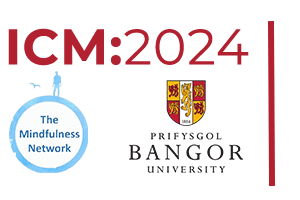political, environmental, and global initiatives
How can we turn mindfulness into action – personally, politically and socially?
Mindfulness has the potential to make a significant impact in our world at a time when we are facing multiple challenges. But for this to be realised, we all need to step up to meet the current issues of our time. We need to engage with policymakers, politicians, and influencers to establish sustainable and structured frameworks for mindfulness to thrive. As we draw the conference to a close, this strand will support us to reflect deeply about how each of us can make a difference and move forward with the work that is needed. We’ll consider our own unique contexts, life experience and skills that enable us to play a part in the bigger whole.
The strand includes, but is not limited to:
- Future Generations Act in Wales
- Mindfulness and the interface with politics
- Meditation practice and environmental/political attitudes and behaviour
- Eco-anxiety
Effects of climate change on individuals and society - Mindfulness and sustainability
- Mindfulness and consumer behaviours?
Strand 5 begins with a Keynote from Jamie Bristow that incorporated a Panel and audience discussion. After this you can choose to attend either: a workshop, research symposium, or guided practice, which will be held across various spaces in Bangor University’s Pontio Centre. Strand 5’s closing Keynote is presented virtually with Jon Kabat-Zinn.
Bristow, J., Bell, R., Wamsler, C. (2022). Reconnection: Meeting the Climate Crisis Inside Out.
Research and policy report.’ The Mindfulness Initiative and LUCSUS. www.themindfulnessinitiative.org/reconnection
Bristow, J., Bell, R., Nixon, D. (2020). Mindfulness: Developing Agency in Urgent Times. The Mindfulness Initiative. https://www.themindfulnessinitiative.org/agency-in-urgent-times/
Bristow, J. (Ed.). (2021). Responding to Mindfulness: Developing Agency in Urgent Times – A compilation of essays. The Mindfulness Initiative. https://www.themindfulnessinitiative.org/responding-to-mindfulness-developing-agency-in-urgent-times-a-compilation-of-essays
What is mindfulness?
How can ancient wisdom and modern psychology together help us understand how distress and suffering are created and recreated? How can they help us understand how joy and well-being are created and sustained?
How does mindfulness support the path from suffering to flourishing? Is mindfulness a technique or a way of being in the world – or both? How does it enable transformation?
What would it take to reconceptualize secular mindfulness training as a transformative lifetime practice that helps people to live in the contemporary world – and more than this to shape the contemporary world in positive ways?
What are the important questions around ethics and integrity for mindfulness practitioners, teachers and the wider field? What supports this inquiry?
- What does it mean to be the change we’d like to see in the world?
Learning aims:
Examine the potential of embodied interdependence as a formal practice
Engage in a guided meditation on embodied interdependence
- Assess and consider future applications for your personal practice and your life in community
Mindfulness and the Climate (Research Group)
-
Climate distress in the student population and its association with mental health, functioning and trait mindfulness Sarah Law
-
Healing within, healing the planet: The effects of mindfulness practice and nature connectedness on climate distress and environmental action Nushka Marinova
-
What Happens in Climate Cafés?: Exploring Responses to the Psychological Burdens of Climate Change in Seven UK Women Luis Calabria
-
“An oasis in my week”: Participant experiences of a mindfulness-based Active Hope course for eco-distress Elizabeth Marks



